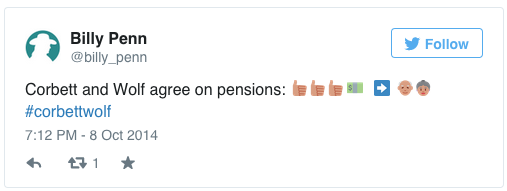
In the aftermath of last month’s Amtrak 188 crash in Pennsylvania, the most valuable coverage didn’t come from local newspapers or television stations. Instead, it came from Philadelphia’s Billy Penn, a local news startup launched last September.
The startup’s four-person editorial team spent much the crash’s ensuing hours and days parsing through the flood of information and accounts, which included tweets from victims, first-person accounts from observers and official statements. The event was the first major test of Billy Penn’s editorial model, which is centered around a mix of original content creation and news nuggets culled from social media and other local media outlets. CNN media correspondent Brian Stelter cited the coverage as some of the most worthwhile, next to local Philadelphia television stations.
“Our first value was to be the one place people went to read about all the developments about the story,” said Jim Brady, CEO of Billy Penn parent company Stomping Ground. “Beyond writing our own stuff, we found what people were saying elsewhere and linked to that.” Each day, Billy Penn links out to 15 articles, while writing three to five.
Such a heavy focus on curation is only a part of what Brady says makes Billy Penn unique. The site, written for the under-35 set, errs on the casual and personable side, as opposed to being overly formal or even journalistically neutral. It has pushed that approach further than most, going as far as to prominently feature emoji in its coverage of local elections.
News traditionalists might balk at the approach, but Brady thinks that that kind of experimentation is why new digital-first publishers have a leg up over their legacy rivals, which are nursing both their business models and leaning on their traditional, fusty approaches to news coverage.
“We’ve consciously tried to make things sound less journalistic,” Brady said. “I really do think that the journalistic detachment has contributed to the indifference young people feel toward traditional journalism right now.”
Billy Penn is only the latest in a line of news operations aimed at Philadelphia specifically, which hasn’t been particularly hospitable to media companies in recent years. Metropolis, one local news effort, shuttered in early 2013 and AxisPhilly, which was launched in 2012, closed its doors last June. Those startups, like Billy Penn, were grassroots efforts to fill the void left by the rapid declines of The Philadelphia Inquirer and Daily News. Philadelphia itself has struggled, a Northeastern city that saw itself hollowed out, haunted by crime and facing a declining population. (Its population has declined by nearly 500,000 since 1960.)
But Brady says that Billy Penn isn’t following in the footsteps of those predecessors. For one, the site is distancing itself from display advertising as the core revenue source (“ads get you into a game you can’t win,” he said), instead opting for native advertising and sponsorships for local events such as “Who’s Next: 18 young Pennsylvanians shaping politics.”
That’s just one of the major lessons Billy Penn has taken from the digital publishers it has modeled parts of its business on. Brady said that Billy Penn “pretty much stole” the Circa feature that lets readers follow certain stories, for example, and it also counts Quartz large-format ads as influences for its own ad strategy.
And, of course, it’s taken more than a few lessons from BuzzFeed.
“If you say that BuzzFeed is stupid or you think it’s not serious enough or you can’t learn anything from it, then you should probably retire,” Brady said. “There’s plenty to learn even there.”
More in Media

Meta AI rolls out several enhancements across apps and websites with its newest Llama 3
Meta AI, which first debuted in September, also got a number of updates including ways to search for real-time information through integrations with Google and Bing.

Walmart rolls out a self-serve, supplier-driven insights connector
The retail giant paired its insights unit Luminate with Walmart Connect to help suppliers optimize for customer consumption, just in time for the holidays, explained the company’s CRO Seth Dallaire.

Research Briefing: BuzzFeed pivots business to AI media and tech as publishers increase use of AI
In this week’s Digiday+ Research Briefing, we examine BuzzFeed’s plans to pivot the business to an AI-driven tech and media company, how marketers’ use of X and ad spending has dropped dramatically, and how agency executives are fed up with Meta’s ad platform bugs and overcharges, as seen in recent data from Digiday+ Research.






